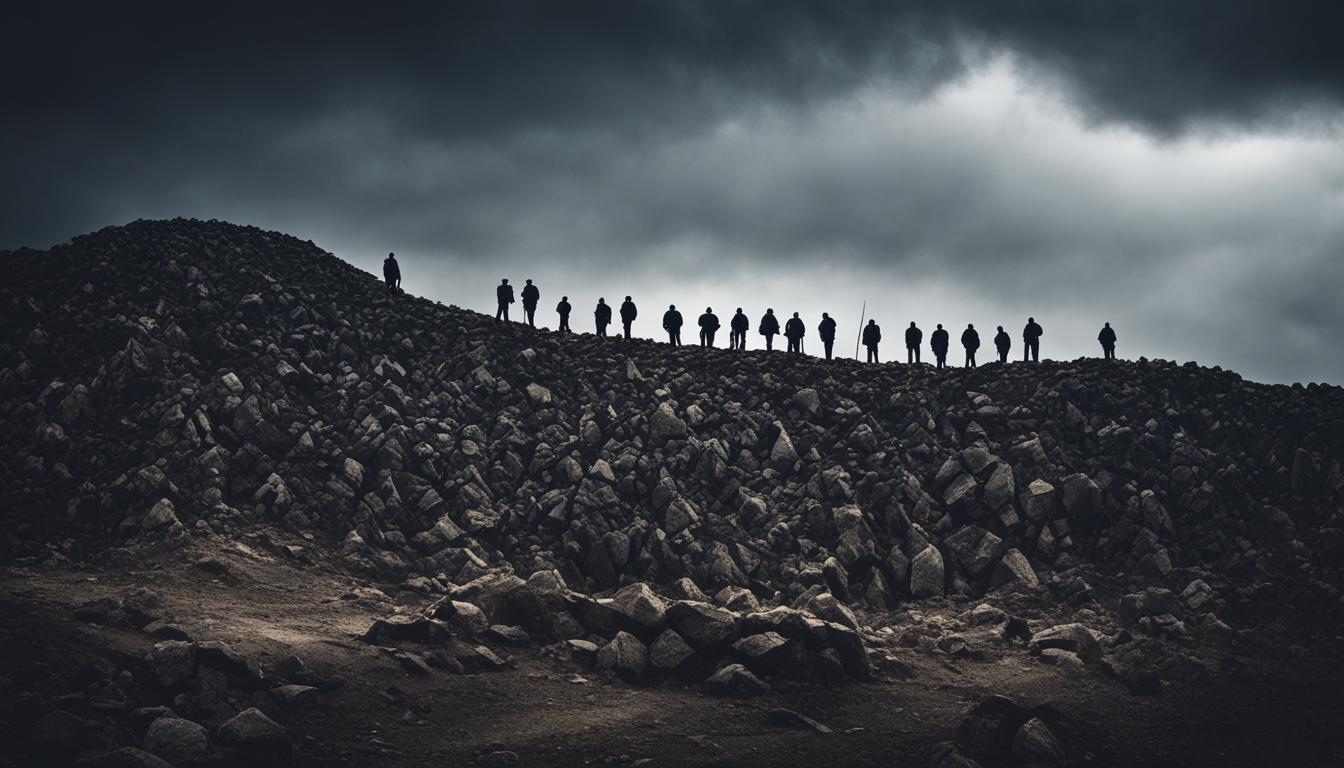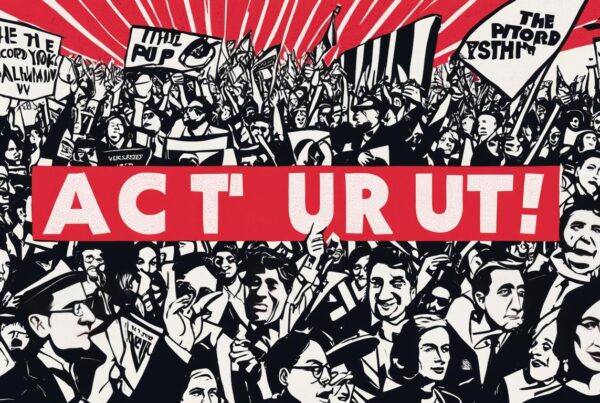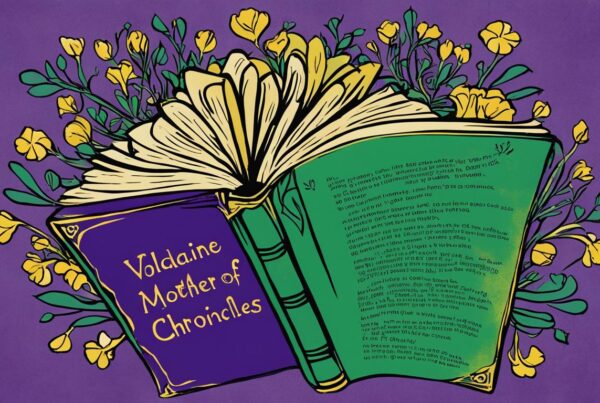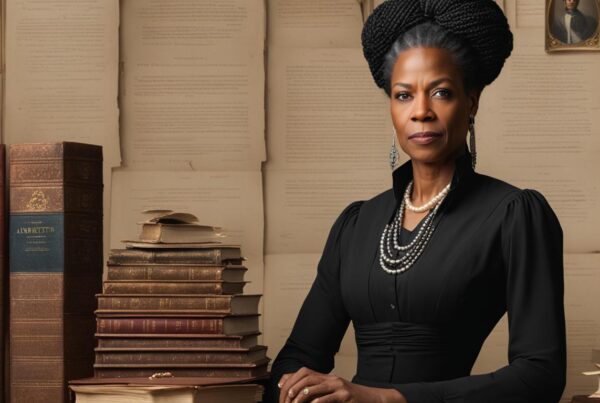If you’re on the lookout for a resonating audiobook review, then keep reading! Imbolo Mbue’s latest work titled “How Beautiful We Were” takes listeners on a breathtaking journey to a West African village as its inhabitants fight against industrial capitalism. Mbue has showcased her masterful storytelling abilities by capturing the essence of resilience in a rapidly changing world.
The book explores how the resilient spirits of the people of Kosawa stand up against the exploitation of their land, community, and the environment. The narration, which brings out the depth of these struggles, is nothing short of impeccable. As you indulge in this audiobook, you will not only be entertained but enlightened with an understanding of how people hold on to hope in the bleakest of days.
Get ready to immerse yourself in a deeply layered narrative that will ultimately leave you hopeful and reflective.
About the Author, Imbolo Mbue
Imbolo Mbue is a critically acclaimed author, widely known for her poignant and thought-provoking stories that explore complex human emotions and experiences. Born and raised in Limbe, Cameroon, Mbue moved to America in 1998 and currently resides in New York City.
Mbue’s debut novel, “Behold the Dreamers,” quickly gained widespread recognition, winning the 2017 PEN/Faulkner Award for Fiction and being named an Oprah’s Book Club selection. Mbue’s most recent novel, “How Beautiful We Were,” has been met with critical acclaim for its stirring portrayal of resilience in the face of oppression, continuing to showcase Mbue’s adept storytelling abilities.
With a writing style that is both lyrical and powerful, Mbue masterfully captures the intricacies of culture, identity, and the human experience, cementing herself as a prominent voice in modern literature.
Plot Overview
How Beautiful We Were follows the story of the fictional African village of Kosawa. After suffering environmental devastation and exploitation by foreign oil companies, the village is left with little hope for the future. When a young girl named Thula is brutally murdered by the oil company’s security forces, her father goes on a mission to seek justice for her, risking his life and the safety of his family.
The story’s central themes revolve around resistance, hope, and the power of community in fighting against oppression. Mbue’s vivid descriptions and character development create a memorable cast, including the determined and fearless Father Msuchulani, the fierce and intelligent Thula, and the conflicted and complex businessman, Wanjeri.
The challenges faced by the characters are intertwined with a rapidly changing world, highlighting the detrimental impact of greed and capitalism on Indigenous communities. Imbued with a sense of urgency, the novel is a call to action for readers to join the fight for social and environmental justice.
“Mbue’s storytelling prowess shines in this powerful narrative, filled with complex characters and meaningful themes.” – Publishers Weekly
Setting the Stage: The World of “How Beautiful We Were”
Imbolo Mbue’s vivid descriptions transport readers to the fictional African village of Kosawa. The book setting plays a crucial role in the story, as it provides a glimpse into a community struggling to maintain its cultural heritage amid rapid industrialization and environmental devastation.
The story backdrop is steeped in history, reflecting Mbue’s meticulous research and attention to detail. Readers will discover the impact of colonization, the legacy of tribal conflict, and the power dynamics at play in the global energy industry.
Geography
The lush landscape of Kosawa is the perfect backdrop for the clash between tradition and progress. The village is situated in the fictional African country of Zambezi, a land of stunning natural beauty. The Zambezi River, one of the longest rivers in Africa, flows through the heart of Kosawa, providing a source of sustenance for the villagers and a potential source of wealth for foreign companies.
Culture and Traditions
The cultural richness of Kosawa is brought to life in Mbue’s intricate descriptions of local customs, folklore, and beliefs. Readers will gain a deeper appreciation for the importance of community, family, and spirituality in African societies.
Historical Context
An understanding of the historical context is essential to fully appreciate the story of “How Beautiful We Were.” The impact of colonialism on African communities is explored through the character of the Minister, who represents the corrupt government officials working to exploit the natural resources of Kosawa. Tribal tensions between the Ovave and the Kosawa people, stemming from past conflicts, further complicate the narrative.
“It’s a story about how people can rage and rise up, how we can raise our voices and make known our rage. Because sometimes rage isn’t a bad thing. Sometimes it’s birthed of the deepest love.” – Imbolo Mbue
The world of “How Beautiful We Were” is complex and multi-layered, reflecting the complexities of modern Africa. Mbue’s use of setting and context adds depth and richness to the narrative, making it a compelling and thought-provoking read.
Character Analysis
Imbolo Mbue’s “How Beautiful We Were” features a diverse cast of characters whose individual stories intertwine to create a rich tapestry of experience. From the strong-willed protagonist Thula to the supporting characters who shape her world, the book is a masterclass in character development.
Thula, the brave and tenacious young woman at the heart of the story, is a shining example of a well-written protagonist. Her journey from a naive girl to a determined activist is marked by trials and tribulations that shape her into a force to be reckoned with.
The supporting characters in “How Beautiful We Were” are equally complex, showcasing their own personal struggles and motivations. From the corrupt government officials to the self-serving foreign corporations, each supporting character reflects a different facet of the story’s themes and adds depth to the narrative.

The character relationships in “How Beautiful We Were” are also critical to the narrative’s impact. Whether it’s the bond between Thula and her father, the tension between activists, or the fraught interactions with outsiders, each relationship drives the story forward and highlights the human element of the struggles depicted.
In summary, the character analysis of “How Beautiful We Were” reveals a captivating and thought-provoking exploration of human nature, relationships, and growth throughout the story. The characters serve as vessels for the book’s themes and messages, and their journeys provide a masterclass in storytelling and character development.
Themes Explored
Imbolo Mbue’s “How Beautiful We Were” is a thought-provoking exploration of several powerful themes and central messages. The book beautifully portrays the resilience of the human spirit, as well as the devastating effects of corporate greed, environmental destruction, and political corruption.
Throughout the narrative, Mbue highlights the importance of hope, resistance, and perseverance in the face of adversity, as seen through the characters’ struggles against systemic oppression and exploitation. The theme of community and solidarity is also prevalent in the story, portraying the strength that comes from uniting against a common oppressor.
The various themes explored in “How Beautiful We Were” are nuanced and profound, contributing to a rich and complex understanding of the narrative. Mbue’s masterful storytelling twists and turns through each theme, providing a deeper exploration of the human experience and the struggles we all face.
Comparison Table: Themes Explored
| Themes | Central Messages |
|---|---|
| Resistance | Have hope and resist against systemic oppression |
| Perseverance | Human spirit is resilient, and we must continue to fight for what’s right |
| Community and Solidarity | Strength in unity, and support of each other in times of need |
As shown in the comparison table, the themes explored in “How Beautiful We Were” are all interconnected. They work together to create a complex narrative that challenges readers to think deeply about their own beliefs and values. Through the narrative exploration of these themes, Mbue creates a powerful and thought-provoking story that leaves a lasting impact on readers long after the final page.
Audiobook Experience
If you’re a fan of audiobooks or are looking to try something new, the audio version of “How Beautiful We Were” is definitely worth your time. The audiobook narration, performed by a talented cast, captures the emotion and tension of the narrative, immersing listeners in the story’s world with ease.
The production quality of the audiobook is top-notch, with crisp audio and seamless transitions between sections. The well-paced narration ensures that listeners can follow the story with ease while also taking in all of the nuanced details that make “How Beautiful We Were” such a compelling read.
While some listeners may prefer the experience of reading a physical copy of the book, the audio version offers its own unique benefits. For those who enjoy multitasking or want to experience the story in a new way, the audiobook version of “How Beautiful We Were” is definitely worth a listen.
“The narration of the audiobook version of ‘How Beautiful We Were’ truly brings the characters and story to life. I felt like I was right there in the midst of the action, experiencing every moment alongside the unforgettable characters.” – Jessica T., avid audiobook listener
Critical Reception
“How Beautiful We Were” has garnered critical acclaim since its release, with many readers and literary experts praising Imbolo Mbue’s gripping storytelling and exploration of powerful themes. The novel has received a wide range of book reviews, offering a well-rounded understanding of its reception in the literary world.
According to a review by The New York Times Book Review, “Mbue writes with great clarity and vividness, capturing not only the throbbing rhythms and suffocating heat of a West African village, but also the complexities and contradictions of its social systems.” The review also highlights the book’s exploration of “the very human cost of corporate greed and the tenacity of those who refuse to be crushed by it.”
Another review by The Washington Post praises “How Beautiful We Were” for its “compassionate and engrossing storytelling,” noting that “Mbue’s prose flows with a lyrical urgency while never losing sight of the difficulties her characters face.” The review also emphasizes the book’s timely exploration of resistance, stating that “Mbue reminds us that the struggle — against exploitation, against injustice, even against annihilation — is not only worth fighting, but that it is also essential to human dignity.”
“Mbue reminds us that the struggle — against exploitation, against injustice, even against annihilation — is not only worth fighting, but that it is also essential to human dignity.”
The novel’s exploration of difficult themes has also resonated with readers, with many praising it for its emotional impact and thought-provoking messages. Reader reviews on Goodreads frequently highlight the book’s powerful character development, vivid setting, and inspiring themes of hope and resilience.
Book Reviews Table
| Publication | Review |
|---|---|
| The New York Times Book Review | “Mbue writes with great clarity and vividness, capturing not only the throbbing rhythms and suffocating heat of a West African village, but also the complexities and contradictions of its social systems.” |
| The Washington Post | “Mbue’s prose flows with a lyrical urgency while never losing sight of the difficulties her characters face. Mbue reminds us that the struggle — against exploitation, against injustice, even against annihilation — is not only worth fighting, but that it is also essential to human dignity.” |
| Goodreads Reader Reviews | “How Beautiful We Were is a powerful, passionate novel full of unforgettable characters and an embodied sense of place. Mbue’s writing is stunning and deeply affecting, capturing both the beauty and brutality of life in this small African village.” |
Overall, “How Beautiful We Were” has received critical acclaim for its masterful storytelling, powerful themes, and resonant impact on readers. Its exploration of resistance and resilience in the face of adversity continues to inspire readers around the world.
Impact and Legacy
Imbolo Mbue’s “How Beautiful We Were” is a vivid portrayal of the power of resilience and resistance in a changing world. Its cultural impact is undeniable, tackling themes of exploitation, corruption, and environmental justice that are more relevant than ever before.
The book’s lasting legacy will undoubtedly be felt in future works that take inspiration from Mbue’s captivating narrative and unique perspective. Its literary influence is already being felt, with numerous critical accolades and widespread praise for its masterful storytelling and emotionally resonant themes.
“Mbue’s work is a brilliant testament to the enduring importance of standing up to power and fighting for a better world. It is a book that will continue to inspire and empower readers for years to come.” – The New York Times
Cultural Significance
The cultural significance of “How Beautiful We Were” lies in its bold exploration of themes that are often underrepresented or overlooked in literature. Mbue’s focus on the environmental destruction and corporate greed that disproportionately affect marginalized communities underscores the need for greater social and political awareness and action.
Her portrayal of the villagers’ fight against the oppressive forces seeking to exploit their resources and land highlights the importance of resistance and the strength of the human spirit in the face of adversity.
Legacy and Influence
As a work of art that speaks to universal human experiences, “How Beautiful We Were” is sure to have a lasting impact on readers and the literary landscape. Its influence can already be seen in the conversations it has inspired about the need for greater representation and awareness of social and environmental issues in literature.
As readers continue to discover and engage with Mbue’s work, its impact and legacy will undoubtedly continue to grow and inspire future generations of writers and readers alike.
Conclusion
Imbolo Mbue’s “How Beautiful We Were” is a powerful audiobook that captures the essence of resilience and resistance in a changing world. The masterful storytelling and captivating characters make it a must-read for fans of contemporary literature.
The audiobook experience adds an extra layer of depth to the already engaging story, drawing listeners in with impeccable narration and high production quality. While some may prefer the traditional reading experience, the audiobook version is a worthwhile alternative that enhances the overall experience.
In conclusion, “How Beautiful We Were” is a triumph in contemporary literature that is sure to leave a lasting impact on readers. With its exploration of important themes and memorable characters, it is a book that will be long remembered after the final page is turned.
Whether you are a fan of audiobooks or prefer traditional reading, “How Beautiful We Were” is a must-read that is sure to leave a lasting impression. Don’t miss out on the opportunity to experience this powerful work of literature.



